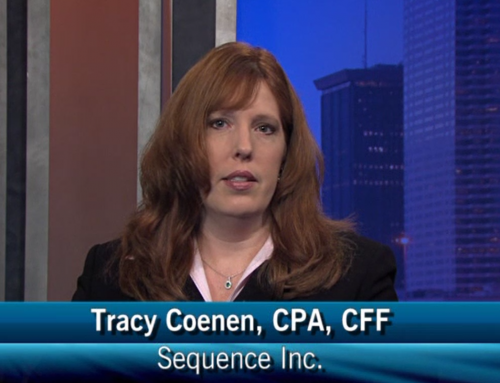Sam Antar made this nice find in regard to materiality, one of many issues at Overstock.com (NASDAQ:OSTK). You see… materiality is an issue because, in addition to “unusual” material items at Overstock, we’ve seen several immaterial “unusual” items as well.
Users of financial statements have a tendency to overlook “immaterial” items, because by definition, they are quite small and likely don’t make much of a difference when you look at the financial statements as a whole
But don’t be fooled. Items deemed small and “immaterial” can in fact be very important to the financial statements. So says the SEC in Staff Accounting Bulleting 99:
SUMMARY: This staff accounting bulletin expresses the views of the staff that exclusive reliance on certain quantitative benchmarks to assess materiality in preparing financial statements and performing audits of those financial statements is inappropriate; misstatements are not immaterial simply because they fall beneath a numerical threshold.
I raised the issue of materiality in the “Financial Statement Fraud” chapter of my book, Essentials of Corporate Fraud:
It’s important to know that the accounting rules and regulations in the United States do not allow for the use of only quantitative measures of materiality. Those measures are most often cited and accepted as the bottom line, but accounting pronouncements specifically say that other situational considerations must be examined as well.
The SEC actually appears to take a very hard line on “immaterial” items if those are intentionally misstated. It matters not that they’re small. Playing with little numbers is something that the auditors and management must be aware of.
For the reasons noted above, the staff believes that a registrant and the auditors of its financial statements should not assume that even small intentional misstatements in financial statements, for example those pursuant to actions to “manage” earnings, are immaterial. While the intent of management does not render a misstatement material, it may provide significant evidence of materiality. The evidence may be particularly compelling where management has intentionally misstated items in the financial statements to “manage” reported earnings. In that instance, it presumably has done so believing that the resulting amounts and trends would be significant to users of the registrant’s financial statements.The staff believes that investors generally would regard as significant a management practice to over- or under-state earnings up to an amount just short of a percentage threshold in order to “manage” earnings. Investors presumably also would regard as significant an accounting practice that, in essence, rendered all earnings figures subject to a management-directed margin of misstatement.
And the auditors are directed:
Section 10A(b) of the Exchange Act requires auditors to take certain actions upon discovery of an “illegal act. The statute specifies that these obligations are triggered “whether or not [the illegal acts are] perceived to have a material effect on the financial statements of the issuer . . . .” Among other things, Section 10A(b)(1) requires the auditor to inform the appropriate level of management of an illegal act (unless clearly inconsequential) and assure that the registrant’s audit committee is “adequately informed” with respect to the illegal act.
As noted, an intentional misstatement of immaterial items in a registrant’s financial statements may violate Section 13(b)(2) of the Exchange Act and thus be an illegal act. When such a violation occurs, an auditor must take steps to see that the registrant’s audit committee is “adequately informed” about the illegal act. Because Section 10A(b)(1) is triggered regardless of whether an illegal act has a material effect on the registrant’s financial statements, where the illegal act consists of a misstatement in the registrant’s financial statements, the auditor will be required to report that illegal act to the audit committee irrespective of any “netting” of the misstatements with other financial statement items.
This is really interesting, in light of the “unusual” inventory numbers that have been presented by Patrick Byrne and Overstock.com over the last couple of years.






Leave a Reply